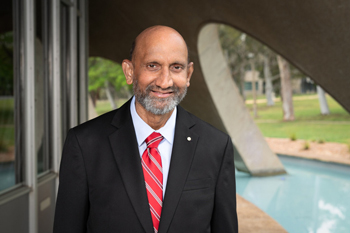
In mid-November, the Academy held what I believe was its most important symposium in our almost 70-year history, titled International scientific collaborations in a contested world. At the heart of the symposium was an issue that goes to the very architecture and nature of the global research system which we rely on to respond to the many challenges facing humanity.
The event happened to fall just days after the Federal Government released draft amendments to a bill proposing researchers must secure an approved permit prior to collaborating with any citizens outside those in the United States and the United Kingdom, or risk jail time.
The Defence Trade Controls Amendment Bill 2023 is designed to strengthen Australia’s defence export control framework to keep pace with emerging security challenges, but it is the Academy’s view that the legislation will benefit from further amendments to make it implementable. You can read more in our submission.
Throughout the symposium, we heard from a range of thought leaders from defence, foreign affairs, our security agencies, the university and research sectors, and industry—discussing the complex and evolving geopolitical landscape and the challenges that we all face in navigating it.
I am confident the symposium improved our mutual understanding of the research and national security challenges we face. The Academy will continue to work with decision-makers across the government, seeking to achieve a nuanced approach that supports our respective and joint objectives consistent with the principles of evidence-based co-design and proportionality.
This month, the Academy also welcomed the report by former Chief Justice of NSW Tom Bathurst AC KC confirming reasonable doubt regarding the convictions of Kathleen Folbigg. The case has now been referred to the Court of Criminal Appeal, which may see her convictions quashed.
The case also demonstrates the need for law reform. Specifically, the Academy is calling for: the adoption of a reliability standard to determine admissibility of evidence; mechanisms for the selection of experts by independent and reliable sources, particularly where complex scientific material is required to inform decision-making; and the establishment of post-appeals review mechanisms, such as a Criminal Case Review Commission.
There is an opportunity to explore these issues further when Dame Julie Maxton DBE, Executive Director of the Royal Society in London, delivers a series of lectures next week in Canberra, Sydney and Melbourne. She will share her experience of transforming the intersection of science and the law in the UK. I encourage you to register.
I hope you will enjoy the rich information in our November newsletter and continue to engage with the Academy throughout the remainder of 2023.
Professor Chennupati Jagadish AC PresAA FREng FTSE
© 2025 Australian Academy of Science